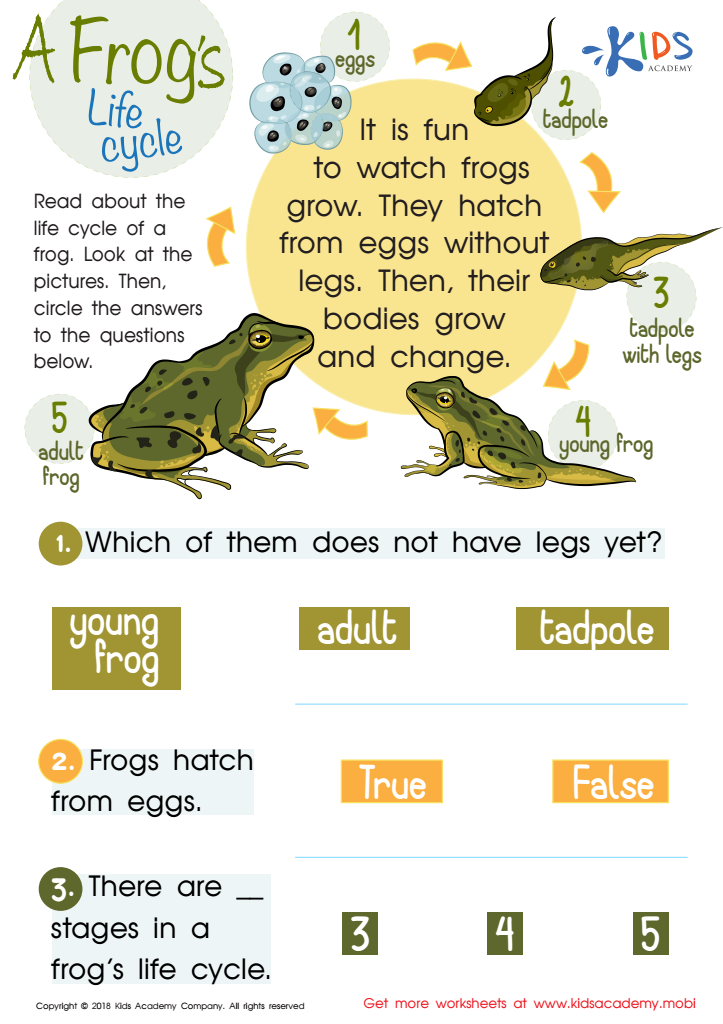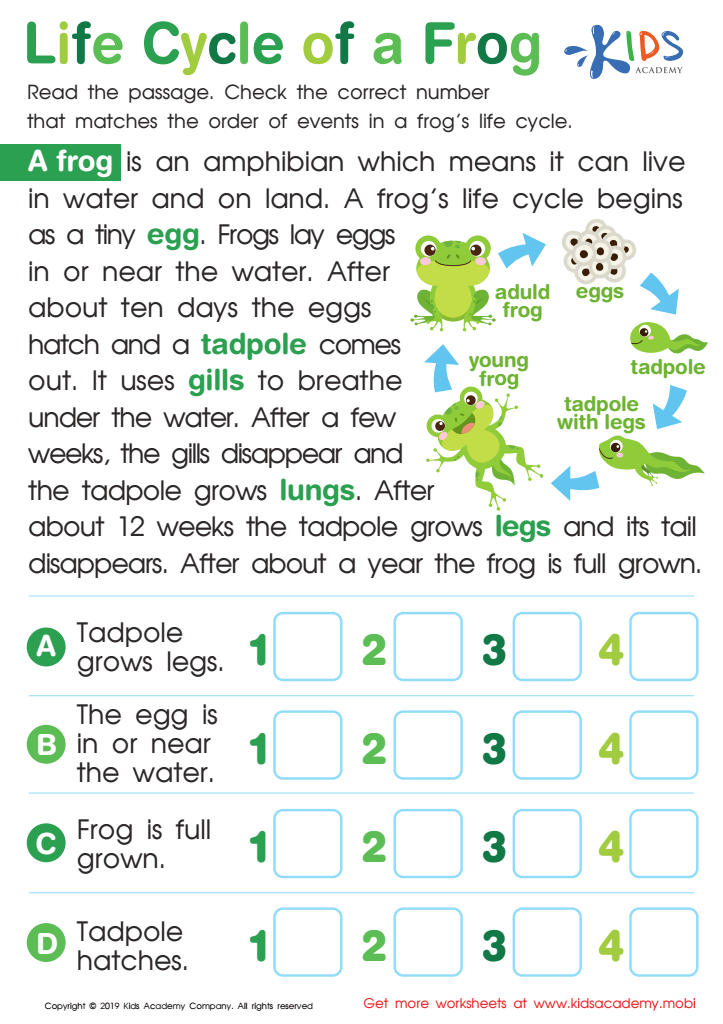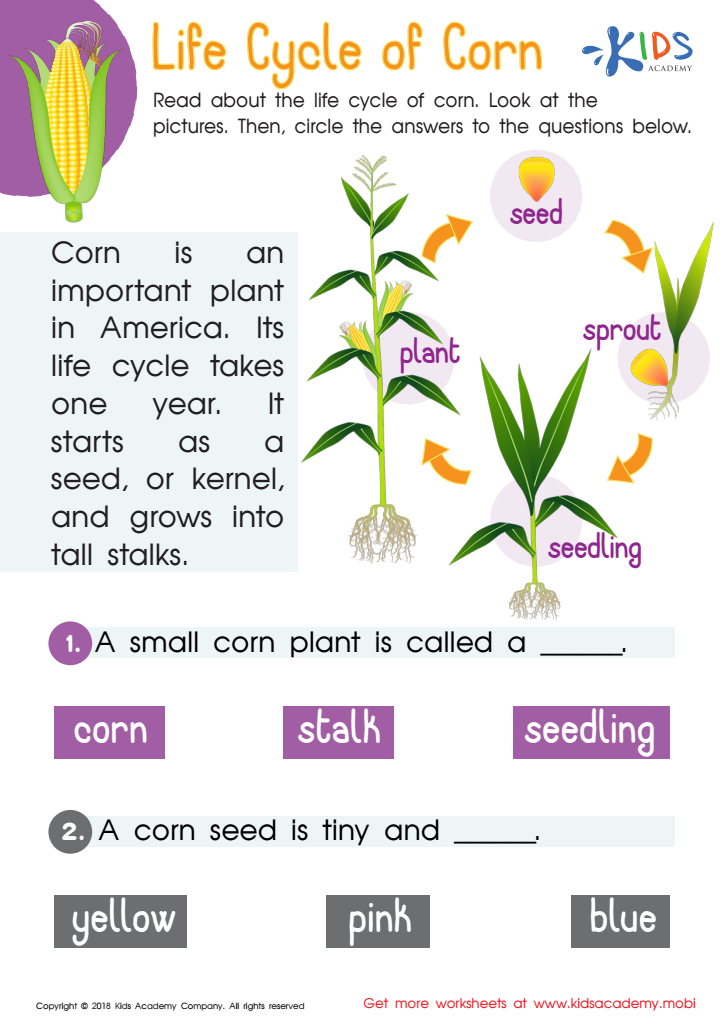Understanding life cycles Reading Worksheets for Ages 5-7
3 filtered results
-
From - To
Discover our engaging "Understanding Life Cycles" reading worksheets tailored for children aged 5-7. These educational resources from Kids Academy introduce young learners to the fascinating stages of life cycles, from butterflies to plants. Each worksheet is designed to blend reading practice with science, boosting comprehension and curiosity. Through colorful illustrations and simple text, kids explore how living things grow and change, developing essential learning skills along the way. Perfect for classroom use or homeschooling, these worksheets inspire a love of reading and science in young minds. Download now to support your child's educational journey!


A Frog’s Life Cycle Worksheet


Life Cycle of a Frog Worksheet


Life Cycle of Corn Worksheet
Understanding life cycles is a crucial element of early childhood education, enriching the intellectual and emotional growth of children ages 5-7. Parents and teachers should prioritize this area of learning because it serves as a foundation for scientific inquiry, promoting curiosity and wonder about the natural world. By observing and learning about life cycles—such as those of butterflies, frogs, or plants—children gain essential insights into processes of growth, change, and reproduction.
This knowledge sparks a broader understanding of the world, helping kids appreciate biodiversity and interdependencies in nature. Moreover, life cycle studies can instill environmental awareness and stewardship from a young age, highlighting the importance of respecting and caring for the planet.
Educationally, understanding life cycles supports early development of key cognitive skills. This includes the ability to observe, compare, sequence events, and make predictions, all of which are important in developing logical thinking. Engaging in life cycle activities fosters critical thinking and observational abilities. Emotionally, such activities also encourage empathy and patience, as children witness living organisms go through various stages.
Practically, this knowledge aligns with many early science curricula and can be integrated across various subjects like reading, writing, and art, creating a rich, interdisciplinary approach that makes learning more cohesive and natural. Engaging kids in life cycles shapes well-rounded, attentive, and conscientious individuals.
 Assign to My Students
Assign to My Students
















